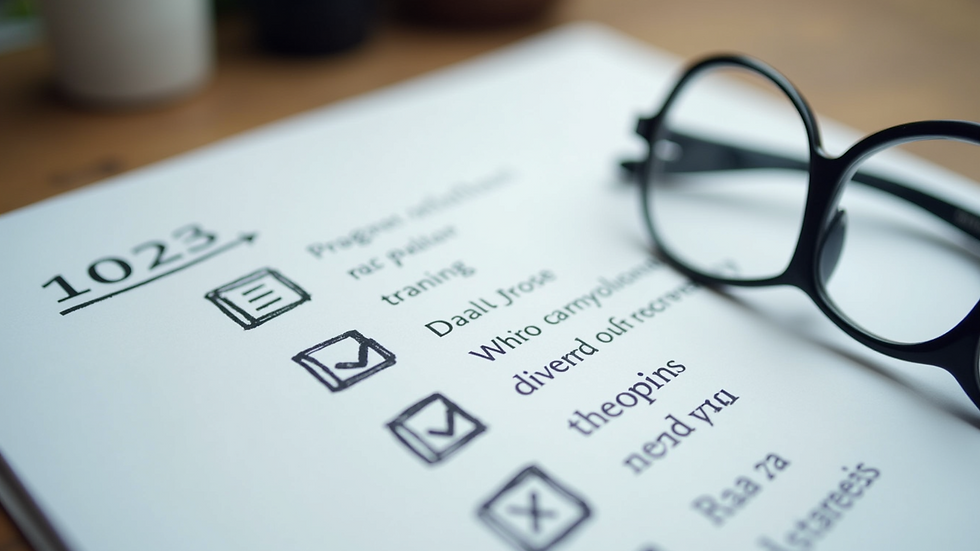Tips for Planning a Successful Corporate Event
- bitesbk
- Aug 24, 2025
- 4 min read
Planning a corporate event can be a complex task, but with the right approach, it can become a rewarding experience that leaves a lasting impression on attendees. Whether you are organizing a conference, seminar, team-building day, or product launch, careful preparation is key to success. This guide offers practical tips and actionable advice to help you plan a corporate event that runs smoothly and achieves its goals.
Understanding the Essentials of a Corporate Event
Before diving into the logistics, it’s important to understand what makes a corporate event successful. The primary goal is to create an environment that fosters networking, learning, or celebration, depending on the event type. Clear objectives should be set early on, such as increasing brand awareness, motivating employees, or launching a new product.
Start by defining the event’s purpose and target audience. This will influence every decision, from venue selection to the agenda. For example, a formal awards ceremony will require a different setup than a casual team-building retreat. Knowing your audience’s preferences and expectations helps tailor the event to their needs.
Budgeting is another critical step. Establish a realistic budget that covers all aspects, including venue, catering, entertainment, and marketing. Keep a contingency fund for unexpected expenses. A well-planned budget ensures you don’t overspend and can allocate resources effectively.

Key Steps to Organize a Corporate Event
Organizing a corporate event involves multiple stages, each requiring attention to detail. Here are the key steps to follow:
Set Clear Objectives
Define what you want to achieve. Are you aiming to educate, celebrate, or network? Clear goals guide the planning process.
Choose the Right Venue
Select a location that fits the event size and style. Consider accessibility, parking, and technical facilities.
Plan the Agenda
Create a detailed schedule including speakers, breaks, and activities. Ensure there is a good balance between formal sessions and informal networking.
Arrange Catering
Food and beverages play a vital role in attendee satisfaction. Consider dietary restrictions and preferences.
Promote the Event
Use email campaigns, social media, and internal communications to generate interest and confirm attendance.
Prepare for Technology Needs
Check audio-visual equipment, Wi-Fi availability, and any other technical requirements.
Coordinate Staff and Volunteers
Assign roles and responsibilities to ensure smooth operations on the event day.
Follow Up Post-Event
Gather feedback and analyze outcomes to improve future events.
Each step requires collaboration and clear communication among team members. Using project management tools can help keep everything on track.

What is Corporate Catering?
Corporate catering refers to the provision of food and beverage services specifically tailored for business events. It plays a crucial role in enhancing the overall experience of attendees by offering convenient, high-quality meals and refreshments.
Choosing the right catering service can elevate your event by providing menus that suit the occasion and dietary needs of guests. Options range from buffet-style meals to plated dinners, snack stations, or coffee breaks. A professional catering company will handle setup, service, and cleanup, allowing you to focus on other aspects of the event.
For example, if you are hosting a full-day conference, offering a variety of healthy lunch options and coffee breaks can keep attendees energized and engaged. For evening receptions, elegant hors d'oeuvres and drinks create a sophisticated atmosphere.
When selecting a caterer, consider their experience with corporate events, menu flexibility, and ability to accommodate special requests. Reliable corporate event catering can make a significant difference in attendee satisfaction and event success.
For trusted and professional services, explore corporate event catering options that specialize in business functions.

Tips for Managing Logistics and On-Site Coordination
Logistics management is often the most challenging part of event planning. To ensure everything runs smoothly, follow these practical tips:
Create a Detailed Timeline
Outline every task from setup to teardown. Include deadlines for vendors, speakers, and staff.
Conduct Site Visits
Visit the venue multiple times to familiarize yourself with the layout and identify potential issues.
Prepare an Emergency Plan
Have backup options for technology failures, weather changes, or last-minute cancellations.
Communicate Clearly with Vendors
Confirm all arrangements in writing and maintain regular contact.
Assign a Point Person
Designate someone to handle on-site coordination and troubleshoot problems as they arise.
Use Checklists
Checklists help track progress and ensure no detail is overlooked.
Set Up Early
Arrive well before the event starts to oversee setup and address any last-minute needs.
By staying organized and proactive, you can minimize stress and handle unexpected challenges effectively.
Enhancing Attendee Engagement and Experience
Creating a memorable experience for attendees is essential for a successful corporate event. Here are some strategies to boost engagement:
Interactive Sessions
Incorporate Q&A, polls, or workshops to encourage participation.
Networking Opportunities
Designate time and spaces for informal mingling.
Personalized Touches
Use name badges, welcome gifts, or customized agendas.
Comfort and Convenience
Provide comfortable seating, clear signage, and easy access to amenities.
Entertainment and Activities
Include live music, games, or team-building exercises to keep energy levels high.
Feedback Channels
Use surveys or apps to collect real-time feedback and make adjustments if needed.
Remember, the goal is to make attendees feel valued and engaged throughout the event.

Final Thoughts on Planning Your Corporate Event
Planning a corporate event requires careful attention to detail, clear communication, and a focus on the attendee experience. By setting clear objectives, managing logistics efficiently, and choosing the right partners, you can create an event that meets your goals and leaves a positive impression.
Remember to leverage professional services like corporate event catering to enhance the quality and convenience of your event. With thorough preparation and a flexible approach, your corporate event can be both successful and enjoyable for everyone involved.






Comments